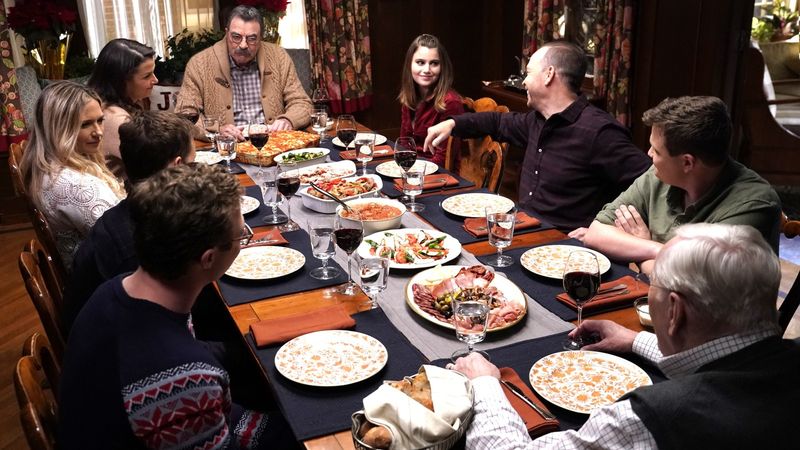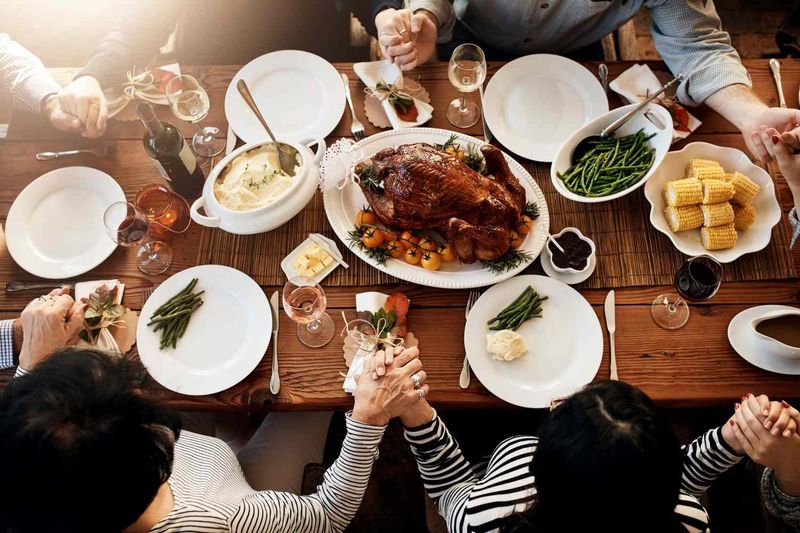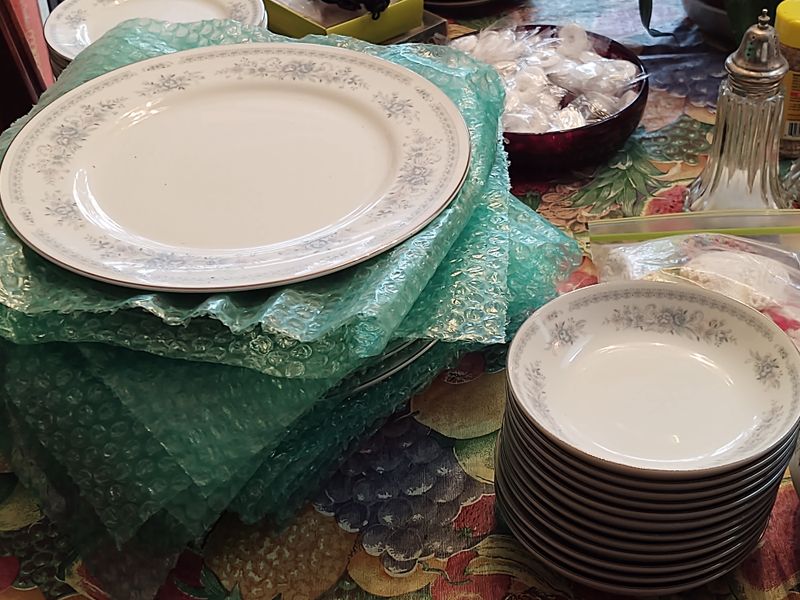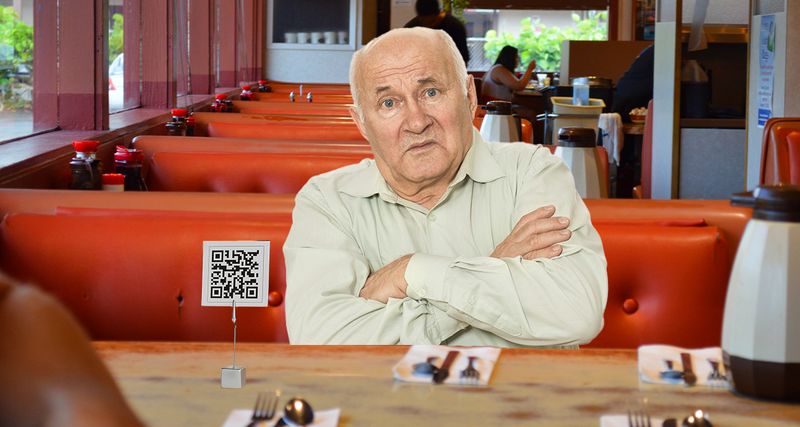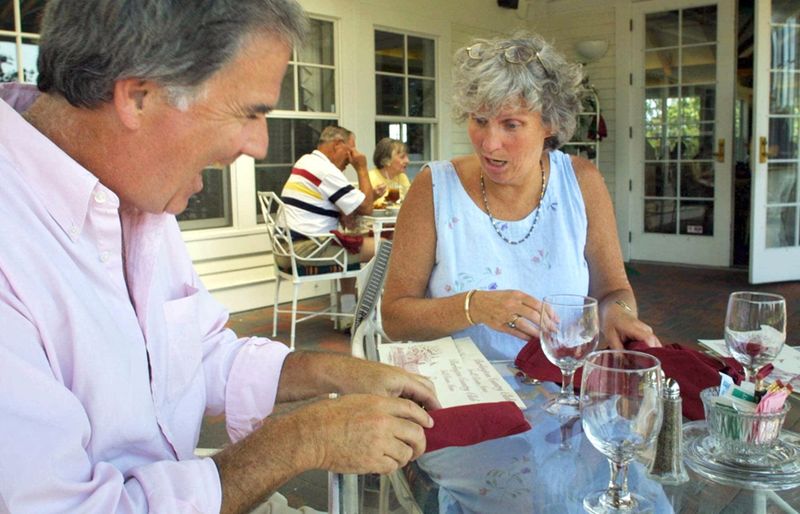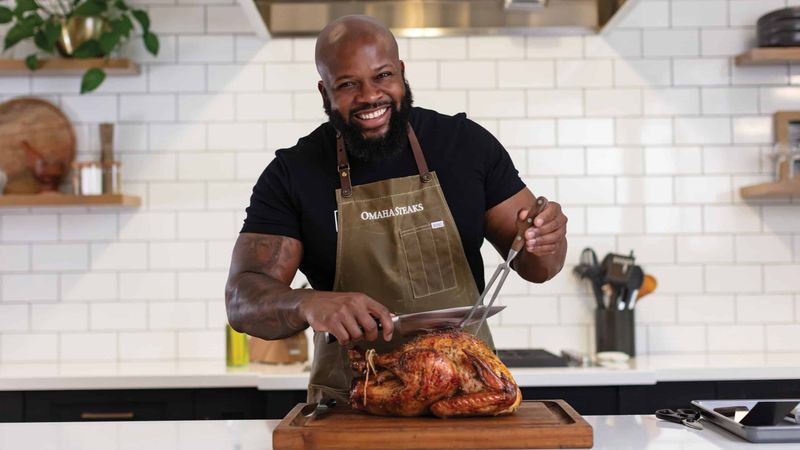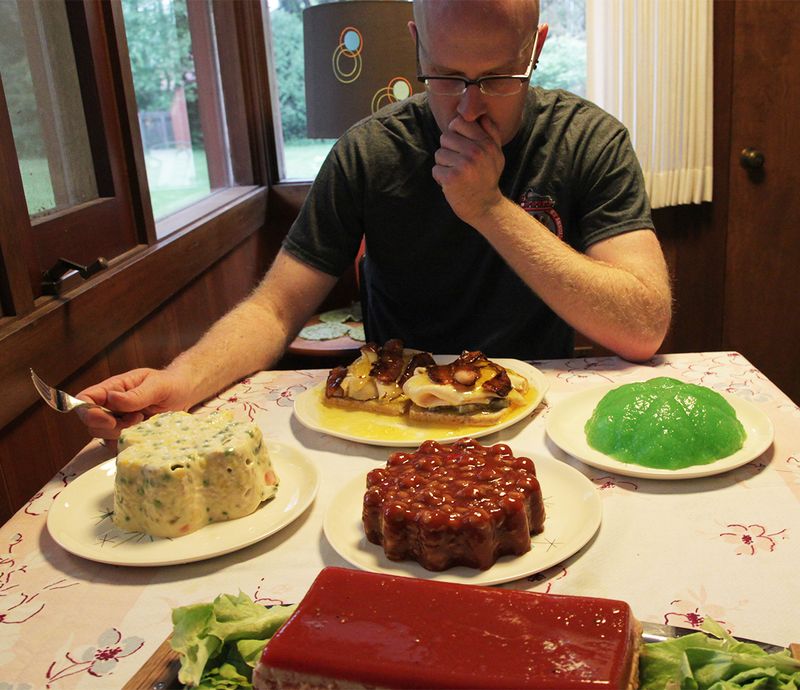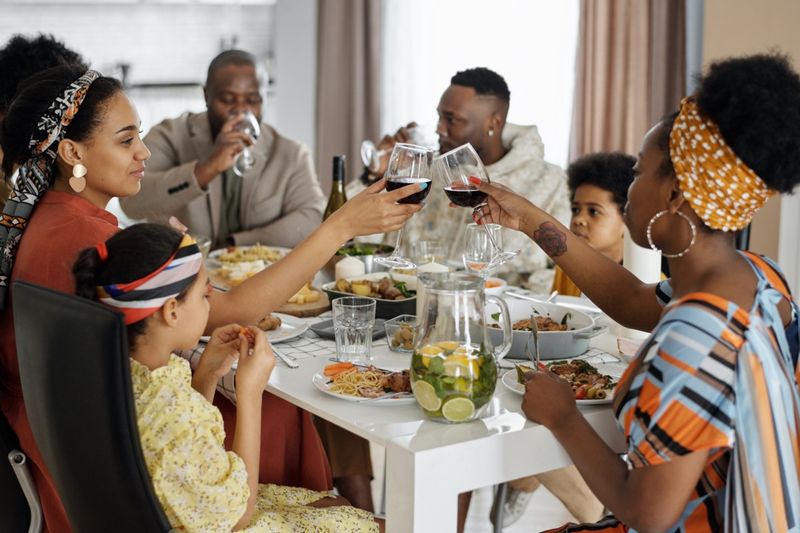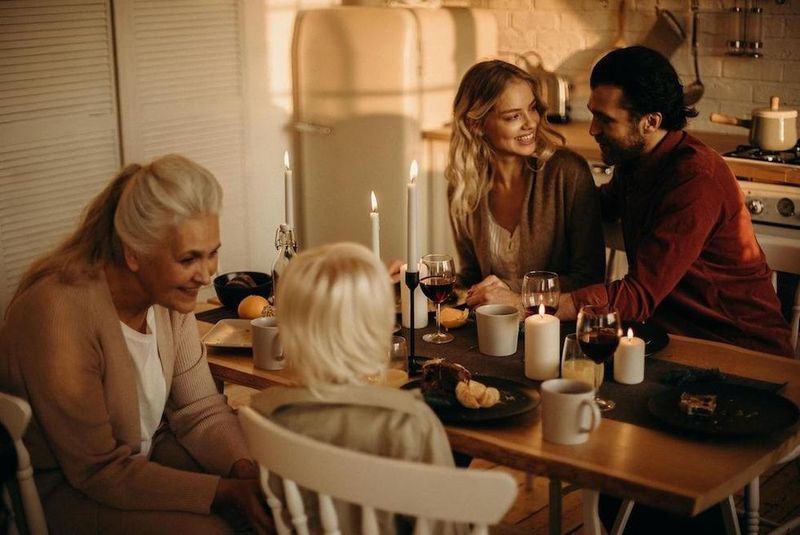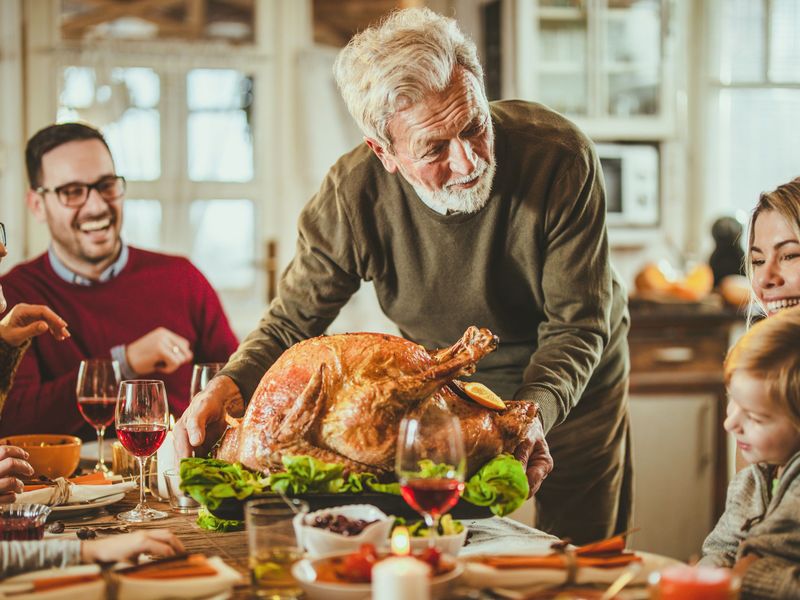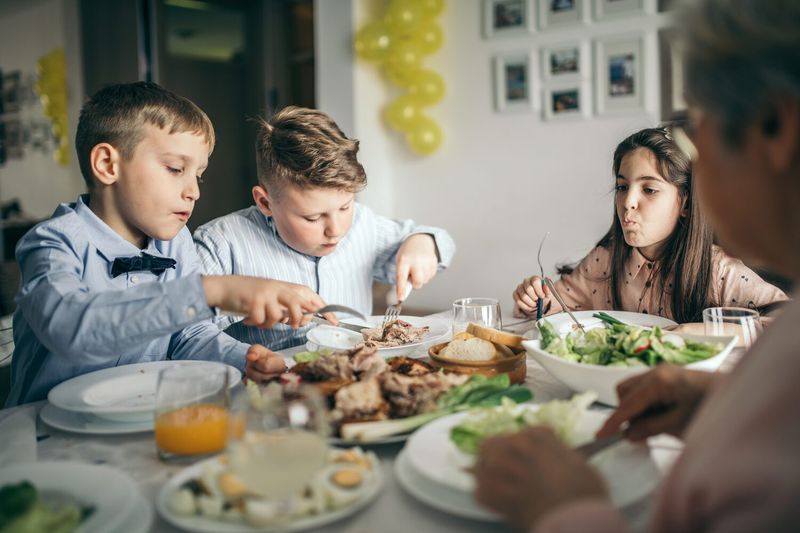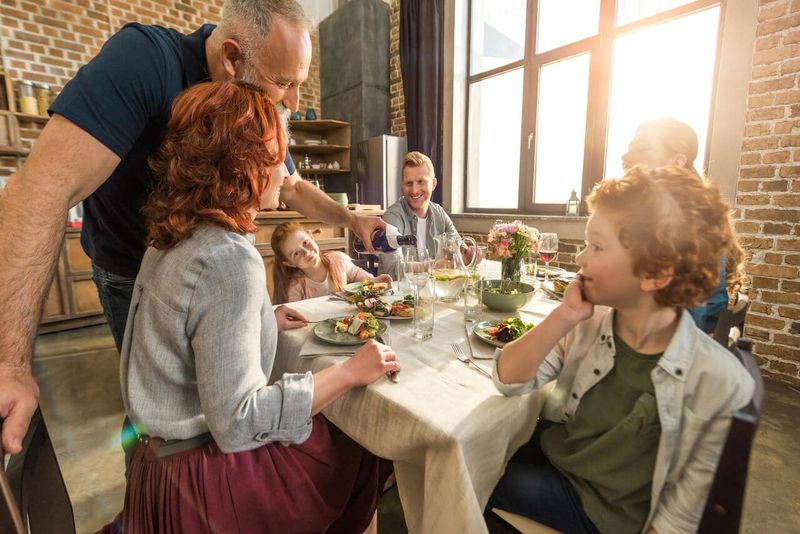We love our boomer parents, aunts, and uncles—but let’s be honest, sometimes they bring more than just a casserole to family dinners. Whether it’s unsolicited advice or outdated dining rules, these classic boomer behaviors can quietly derail the vibe. Let’s spill the (lukewarm, overcooked) tea.
1. Talking About “Kids These Days” Before the Appetizer
It’s the opening act of every dinner drama—cue the generational sermon. Before the salad even hits the plate, the inevitable grumble about the younger generation’s work ethic or moral compass begins. This monologue, though possibly well-intentioned, tends to lose its audience faster than the Wi-Fi at grandma’s house.
While elders reminisce about their uphill-both-ways school stories, younger diners might find themselves zoning out. Meanwhile, the bread rolls grow cold. By the time the appetizers appear, the room feels like a lecture hall.
2. Forcing Everyone to Sit in Assigned Seats
This isn’t Thanksgiving 1983. Let people live. There’s something oddly formal and stifling about arriving at a familiar family table only to be herded into a specific chair. It’s as if grandma’s dining room transformed into a Victorian dinner party.
The beauty of a casual dinner lies in spontaneous seating arrangements, where laughter flows freely and bonds strengthen. Yet, when told to “sit here,” diners might feel more like chess pieces than family.
3. Pulling Out a Flip Phone to Show 47 Blurry Grandkid Photos
We love the kids too, but we’ve seen that same selfie 14 times. That nostalgic flip phone, though a relic of simpler times, becomes the star of the show once dinner conversation falters. However, the photos—charming as they might be—often resemble abstract art more than cherished memories.
While intent on sharing joy, the flip phone parade sometimes makes others feel like they’re stuck in a time loop. As the same grainy images circulate, conversation drifts away, and dessert gets cozy in the kitchen. What if next time, we explored the wonders of cloud storage?
4. Bringing Up Politics—Loudly
Nothing pairs better with mashed potatoes than an unexpected rant about gas prices or “the good old days.” As the political discourse revs up, it often polarizes the table faster than you can say “filibuster.” The clash of opinions can rival any fireworks display.
Rather than the intended lively debate, it sometimes steers towards a tense silence, leaving mashed potatoes as cold as the atmosphere. While political discussions offer depth, during dinner, they may overshadow lighter subjects. If only every political chat ended with laughter instead of indigestion.
5. Insisting on Saying Grace for Exactly 3 Minutes
Respect the ritual—but maybe skip the mini sermon while the lasagna gets cold. The art of saying grace often morphs into a lengthy oration, complete with life lessons and gentle reprimands. This heartfelt moment, though well-meaning, occasionally borders on endurance test.
While intentions are noble, the extended grace can leave hungry diners eyeing their plates longingly. An abridged version could ensure gratitude without the side of lukewarm pasta.
6. Offering Diet Commentary on Everyone’s Plate
If you call it “watching your carbs,” don’t judge me for my third roll. The unsolicited dietary analysis often becomes as predictable as the green bean casserole. While comments might aim to show care, they occasionally feel more like culinary critiques.
Instead of enjoying culinary delights, diners might find themselves defending their choices. Perhaps if every meal approached food as joy rather than a nutritional battleground, dinners would transform into celebrations.
7. Launching Into a Story About a Colonoscopy
Right as we’re digging into dessert. Every time. With impeccable timing, tales of hospital gowns and endoscopic adventures unravel, usually just as the chocolate mousse arrives. This medical monologue, though meant to entertain or inform, often becomes the unexpected dessert course.
While everyone admires resilience, some stories pair better with afternoon coffee than crème brûlée. Medical anecdotes could find their prime time post-dinner, perhaps with a more receptive audience.
8. Not Letting Anyone Start Eating Until They Say “Bon Appétit”
We’ve been waiting since 6:00. Our appetit is very much bon already. The charming tradition of unison “Bon Appétit” becomes a rigid rule, transforming a spontaneous expression into a scripted moment.
While meant to unify, the enforced bonhomie sometimes feels like an uncomfortable pause button. What if, instead, the start of the meal celebrated the natural flow of conversation?
9. Complaining That the Music Is Too Loud
It’s Norah Jones. We’re not exactly raging. When the soft strains of easy listening prompt complaints, it’s clear there’s a generational volume gap. Music, meant to enhance ambiance, sometimes inadvertently becomes noise pollution.
While seeking tranquility, boomer diners might prefer the soft clink of cutlery over melodies. Lowering the volume slightly could bridge the auditory divide.
10. Correcting Your Table Manners Mid-Bite
Boomer motto: If you’re chewing with your mouth closed, you’re still doing it wrong. As the self-appointed guardians of etiquette, boomers often feel compelled to uphold dining decorum, turning every meal into an impromptu etiquette class.
Their intentions, while noble, sometimes leave diners self-conscious rather than enlightened. A dinner table free of critique might allow for more genuine camaraderie. After all, isn’t the messiness part of the charm?
11. Telling the Same Story Every Dinner
Yes, we know how you met Mom. It involved a jukebox and a misunderstanding about a malt. The comfort of familiar tales becomes a staple, woven into the fabric of every family meal, much like the embroidery on grandma’s tablecloth.
Though endearing, these repeated narratives might make younger folks long for new material. Perhaps if the storytelling spotlight shared more voices, dinners would become rich tapestries of shared experiences.
12. Forcing Someone to Carve the Turkey “The Proper Way”
It’s not a food network special—just let it be sliced. The art of turkey carving often becomes a ceremonial event, with boomer aficionados offering detailed guidance as if preparing a masterclass.
While carved with love, the pressure to perform sometimes overshadows the joy of sharing a meal. What if carving became an act of collaboration rather than competition?
13. Bringing Jell-O Salad Like It’s Still 1974
We don’t know what’s in it. We’re too afraid to ask. The kaleidoscopic wonder of Jell-O salad, a relic of yesteryear, makes its nostalgic appearance, sparking intrigue and caution in equal measure.
While admired as a testament to culinary history, modern palates might find its charm more visual than gustatory. A new dish that nods to the past while embracing the present could become a beloved tradition in its own right.
14. Making Someone Give a Toast—Spontaneously
Public speaking + social anxiety + sparkling cider = mild panic. The unexpected call to raise a glass and impart wisdom can transform a relaxing meal into a nerve-wracking event.
While intended to celebrate togetherness, spontaneous toasts might leave more introverted diners wishing for a prepared script. A celebration where voices, whether loud or soft, are heard when they’re ready, could enhance the dinner experience for all.
15. Complaining About Smartphones… Then Scrolling Facebook
With the brightness turned all the way up. What begins as a lament over modern technology often morphs into a digital deep dive, with boomers exploring social media while the critique still echoes.
The irony isn’t lost on their younger counterparts, who might chuckle at the double standard. Rather than an anti-tech tirade, perhaps a balanced approach could allow for shared moments of digital discovery.
16. Telling Someone to “Smile More” During Dessert
We’re not sad. We’re just digesting. The well-meaning suggestion to brighten one’s expression sometimes feels more like an unwelcome interruption than encouragement.
While smiles are indeed contagious, authentic joy can’t be summoned on command. Imagine a table where every expression is celebrated, from contemplative to cheerful. A place where dessert is savored in silence or shared laughter, depending on the moment. After all, isn’t the true sweetness of dessert found in its flavor, rather than the faces around it?
17. Criticizing the Cooking While Taking Thirds
If it’s “a little dry,” why are you going back for more, Uncle Ron? The paradox of simultaneous critique and consumption often unfolds with humor at every family feast.
While feedback is a gift, it occasionally feels misplaced when paired with a third helping. What if every dish, regardless of texture, was met with appreciation rather than appraisal? Isn’t the true measure of a dish its ability to bring us together?
18. Refusing to Accept Dietary Restrictions
No, we can’t “just pick out the bacon.” The clash of culinary customs sometimes leads to misunderstandings, as well-intentioned hosts struggle to accommodate dietary needs.
While aiming to please, the dismissal of preferences might leave some guests feeling overlooked. Imagine a gathering where every plate reflects thoughtfulness and inclusivity, where even the simplest dish acknowledges a diverse palate.
19. Bringing Up Inheritance Over Wine
Estate talk kills the vibe faster than burnt pie. As wine glasses clink, conversations about wills and legacies might overshadow lighter fare, leaving an emotional aftertaste.
While future planning is prudent, it occasionally feels misaligned with the evening’s festive spirit. Picture a dinner where such serious subjects find their time and place, away from the table’s laughter. A gathering focused on today’s memories rather than tomorrow’s worries could be truly priceless.
20. Oversharing Personal Health Updates
Some things are better left between you and your primary care physician. The detailed recounting of doctor visits and medical tests often finds its way into dinner conversations, turning the table into a makeshift waiting room.
While health is important, such discussions might sideline lighter topics that foster connection.
21. Forgetting They Already Told That Joke
Twice. This meal. The charm of repeated jokes, although familiar, sometimes turns a punchline into a predictable pause.
While laughter remains a universal language, repeated humor might leave listeners politely chuckling rather than genuinely amused. Imagine a table where humor evolves, with each meal introducing fresh repartee. The joy of storytelling lies not only in the stories themselves but in their delivery.
22. Reminiscing About When the Whole Family “Used to Be Closer”
Ah yes, the emotional guilt appetizer. As nostalgia sweeps through the room, tales of bygone closeness might sprinkle a touch of wistfulness over the meal.
While memories bind, they sometimes overshadow the present connection. What if instead, every gathering celebrated today’s togetherness without the shadow of yesterday’s regrets?
23. Trying to Start a Sing-Along
Unless it’s karaoke night, let’s keep the folk songs in the car. The spontaneous burst into song might catch diners off guard, turning their meal into an unexpected concert.
While music unites, a surprise sing-along might leave some diners feeling out of tune. Imagine if songs found their moment post-dessert, where voices joined willingly and melodies became a shared encore.


